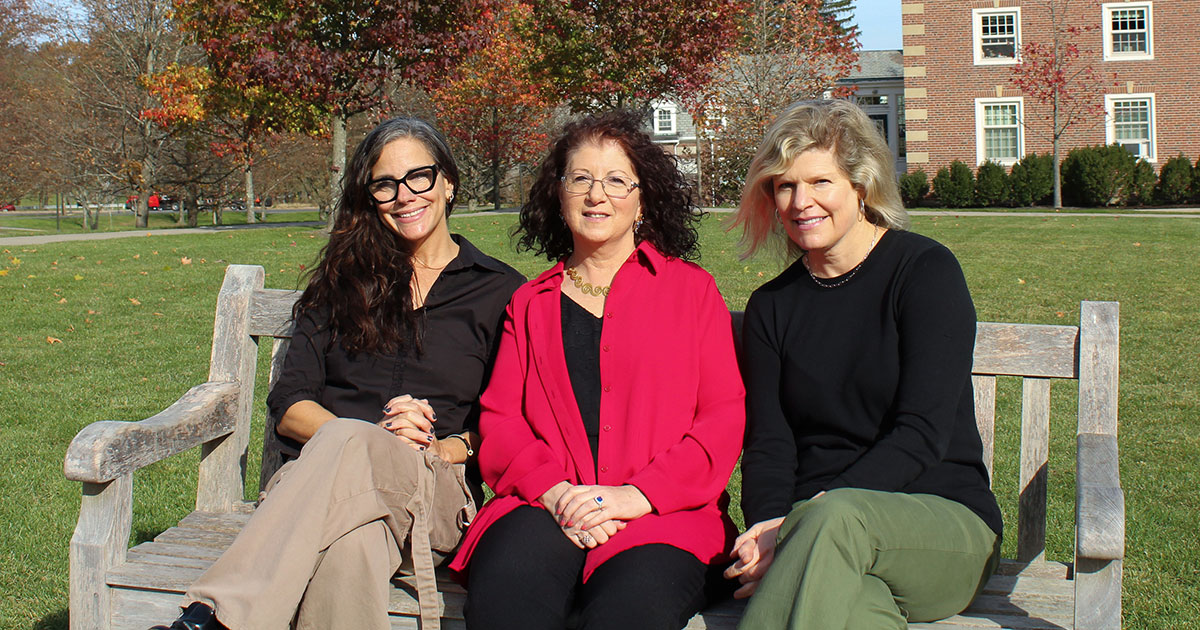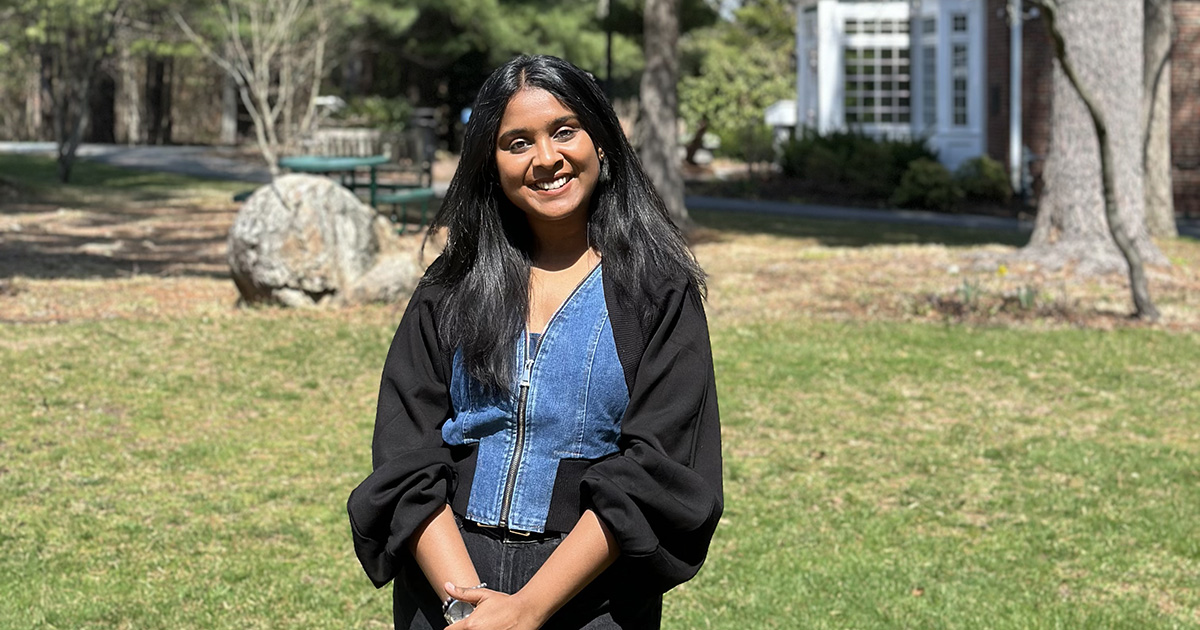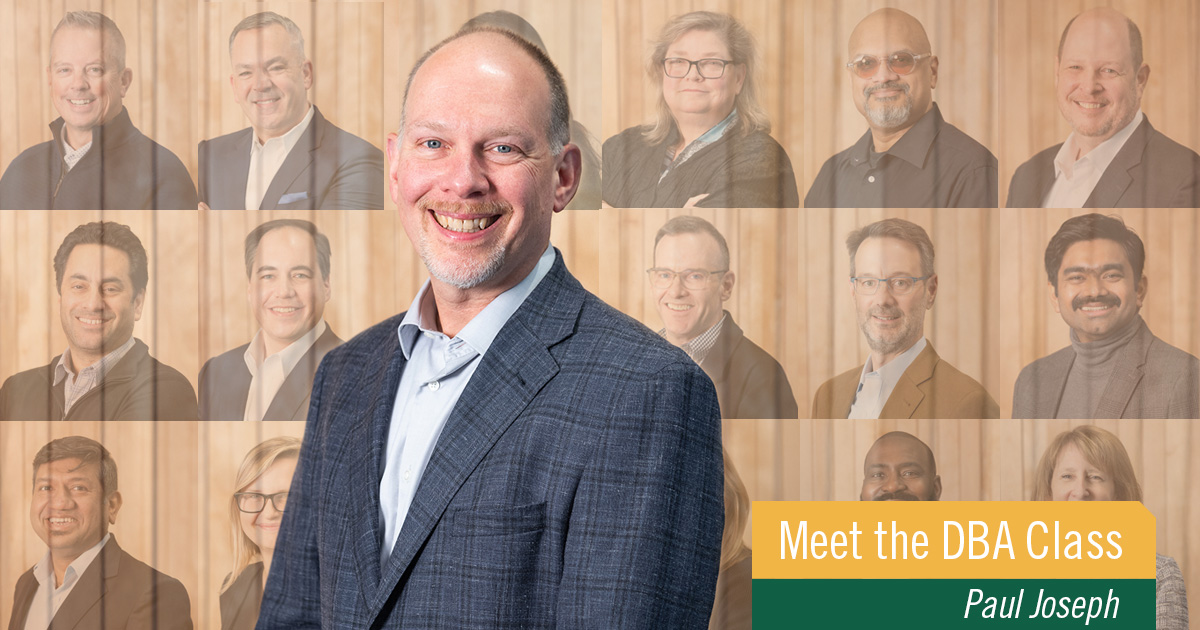What Entrepreneurship Can Mean for Those in Prison

Inside the walls of the Massachusetts Correctional Institution Framingham, a medium security prison commonly known as MCI-Framingham, the women inmates have a lot of time to think.
They think about their pasts and the mistakes they made, and they think about their futures, worrying that their children and grandchildren may end up in a similar place.
Such thoughts are burdensome and painful, and it’s much to reckon with. Helping these women rethink their lives and who they want to be is a group of Babson College faculty, staff, and students, who teach about entrepreneurial leadership and its power to create and transform.
“These are women with tough lives. They are rethinking who they are,” says Beth Goldstein, one of several entrepreneurship educators involved in Babson’s efforts. “That’s where the entrepreneurial piece comes in. It helps them reframe who they are.”
Now in its second year, Babson’s Venturing Out Prison Education Initiative offers a four-course certificate program, one that considers the challenges and trauma that the women have faced and seeks to empower them with an entrepreneurial mindset.
The courses are taught inside the walls of MCI-Framingham, and the student inmates are eager to learn, says Babson Professor Elizabeth Swanson P’19, the Joyce H’22 and Andy Mandell ’61 Endowed Professor of Literature and Human Rights. “There is no greater joy than spending three hours every week with students whose intelligence, commitment, passion, and growth are unparalleled,” Swanson says.
Had to Be Involved
Residing in one of the oldest prisons in the country, the women of MCI-Framingham typically come from marginalized communities plagued by poverty, addiction, and violence. “Most have grown up in structurally disadvantaged circumstances,” Swanson says. “Many of them have been in the system since the very beginning of their lives.”

This is a population that Swanson knows well. For years, students in her Interdisciplinary Approach to Human Rights course have worked with inmates, helping them develop business plans that they could pursue once they were released.
For these efforts, Babson used to partner with Venturing Out, a local nonprofit that taught entrepreneurship classes inside correctional facilities. When Venturing Out shut down, it awarded a grant to Babson, allowing the College to launch its own prison education program. “This work continues my passion and career commitment to working with the most vulnerable people among us,” Swanson says.
Volunteering to help Swanson with Babson’s prison education program are Goldstein and Nan Covert. They were both moved by the initiative’s mission, even though it’s outside their main jobs at the College with the Babson Academy for the Advancement of Global Entrepreneurial Learning.
“I was aware of this important work Elizabeth is doing,” says Covert, Babson Academy’s senior director of university relations and business development. “This was an opportunity to have a local impact and have a personal impact on people. I just knew I had to be involved.”
Face to Face
While the program’s concluding course, Leading Your Startup, prepares students to identify opportunities as they return to their communities post-incarceration, the initiative isn’t simply focused on teaching them how to start a business. Entrepreneurial thinking and acting is presented as an essential life skill, for both inside and out of MCI-Framingham.
“It may not be entrepreneurship as some think of it in building a business,” Covert says. “The focus is on entrepreneurial leadership. What are my leadership skills, and who am I as a leader, and what are the opportunities inside the walls to be a leader? It is very empowering, and it is tied to self-esteem and the choices you make.”
Other courses in the humanities-based certificate include The Art of Self, Transformation Through Entrepreneurial Leadership, and Self as Global Citizen. Students in the program, as well as Department of Corrections staff, have noted positive changes in participants’ behavior and attitudes. “They are thinking of their own lives, including their daily decision making, within the walls in new ways,” Swanson says.
A critical partner in the program is Babson students. As part of Swanson’s human rights course, students are given a choice of organizations in which to do service, and roughly a dozen typically choose MCI-Framingham. Students serve as mentors, help with research for business plans, and participate in a book club with inmates.
“They are thinking of their own lives, including their daily decision making, within the walls in new ways.”
Elizabeth Swanson P’19, the Joyce H’22 and Andy Mandell ’61 Endowed Professor of Literature and Human Rights
The experience leaves an impact. “It is very humbling for Babson students to arrive at a state prison, to go through security,” Covert says. “They are sitting face to face with this cohort of women. It is incredible for our students to be able to do that.”
Babson’s prison education initiative, which will end its pilot phase this spring, recently achieved a significant milestone. Thanks to approval from Babson’s Undergraduate Academic Policy Committee, inmates in the program will be given full, transferable College course credit starting in the fall. With that step taken, Swanson, Covert, and Goldstein now hope to expand the support the program gives to inmates in the future, by mentoring them once they leave prison, helping companies to hire them, and by supporting their children and families with entrepreneurial leadership education.
“They are the most appreciative group I have ever worked with,” says Goldstein, senior director of academic strategy for the Babson Academy’s Youth Impact Lab. “It is so rewarding to watch them grow and become real contributors to society.”




